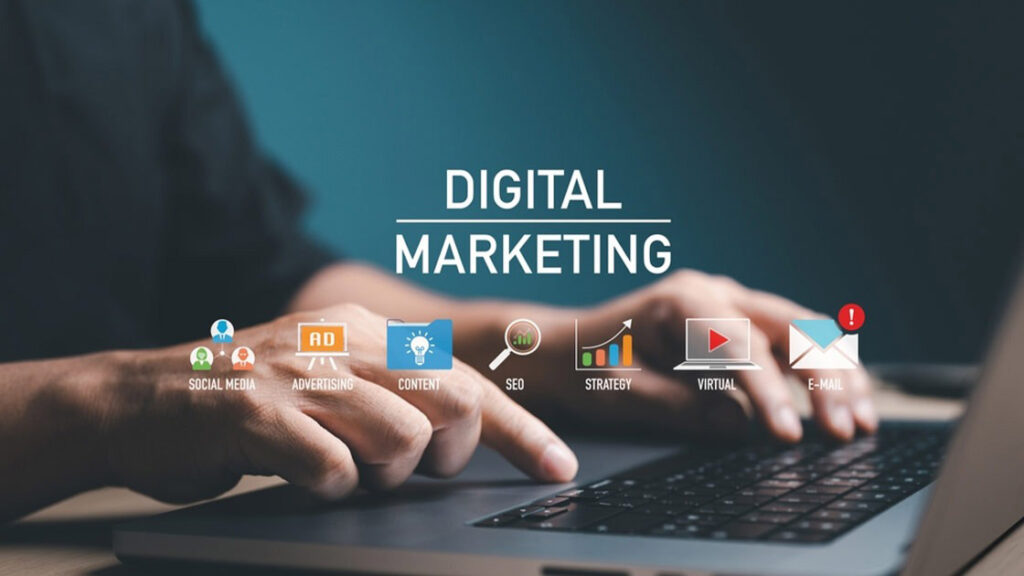The way businesses reach out and engage with their clients has been altered by digital marketing. Categories of Digital Marketing is an important part of every business, regardless of its size due to the role played by the internet and technology in everyday life. For a business to develop an effective marketing strategy, it needs to understand different categories of digital marketing. These are some of the most common forms of digital marketing that you should know about.
Search Engine Optimization (SEO)
Search Engine Optimization, commonly known as SEO is speical category of digital marketing, is a process that enhances a website’s ranking on search engine results pages (SERPs). SEO primarily focuses on increasing organic traffic to a website by making it more visible to users entering certain keywords.
Key Elements of SEO:
- Keyword research: Identifying the right keyword phrases that potential customers are typing into Google.
- On-page SEO: Optimizing content, meta tags, images and URLs on your site.
- Off-page SEO: Building backlinks from other recognized websites which increases site authority.
- Technical SEO: Enhancing backend elements like site speed, mobile usability and indexation for better performance.
If done correctly, SEO can be a long-term strategy that brings sustainable traffic as well as conversions.
Pay-Per-Click (PPC) Advertising
Pay-Per-Click (PPC) advertising refers to a the Categories of Digital Marketing of digital marketing in which advertisers are charged every time somebody clicks on their ad. Unlike SEO that is concerned with organic traffic, PPC brings paid traffic to a website.
Common PPC Platforms:
- Google Ads: This is the most popular platform where ads appear on search engines like Google and partner sites.
- Social Media Ads: Platforms like Facebook, Instagram and LinkedIn offer PPC options to target specific audiences.
- Display Ads: These are banner ads that appear on various websites within a network such as the Google Display Network.
PPC enables companies to quickly reach their intended customers; however, it requires continuous budgeting and optimization.
Content Marketing
Content marketing refers to creating and sharing valuable content aimed at attracting and engaging a particular audience. This content can take many forms including blog posts, videos, infographics, eBooks etc.
Goals of Content Marketing:
- Educate the Audience: Give useful information for solving problems or answering questions.
- Build Trust: Make one’s brand an authority in its field.
- Generate Leads: Persuading readers into action such as signing up for a newsletter or downloading guide.
The reason why content marketing is worthwhile is it concentrates on delivering value to the audience instead of merely advertising a product or service directly.
Social Media Marketing
Social media marketing entails using platforms such as Facebook, Instagram, Twitter, LinkedIn among others to market a brand, interact with customers and drive website traffic.
Key Aspects of Social Media Marketing:
- Content Creation: Sharing posts, images, videos and stories that resonate with the audience.
- Engagement: Involving followers in conversations through comments, likes, and shares.
- Advertising: Placing targeted ads meant for specific groups of people based on their characteristics.
Social media marketing is valuable for raising awareness about brands and gaining customer loyalty.
Email Marketing
One of the oldest forms of digital marketing – email marketing – remains highly effective. It involves sending targeted emails to a list of subscribers to promote products, share news or provide valuable information.
Types of Email Marketing:
- Newsletters: Regular updates sent to subscribers with content, promotions or company news.
- Promotional Emails: Emails focused on special offers, discounts or new product launches.
- Transactional Emails: Automated emails triggered by specific actions like order confirmations or password resets.
When done well, email marketing can result in repeat business and direct communication with customers.
Affiliate Marketing
Affiliate marketing is an approach that rewards affiliates for referring traffic or sales to a business.
How Affiliate Marketing Works:
- Affiliates Promote Products: Affiliates promote companies’s products on their platforms, usually bloggers or influencers.
- Tracking and Commissions: The affiliate earns a commission as sales or leads are generated through the unique link of the affiliate.
- Performance-Based: This type of advertising is cost-effective where businesses pay only when it works.
By leveraging others’ influence, affiliate marketing extends the reach of a brand and drives sales.
Influencer Marketing
Influencer marketing involves working with influencers who have large followings on social media and other platforms. These influencers will promote the products or services offered by a brand to their audience.
Benefits of Influencer Marketing:
- Reach a Targeted Audience: They have followers that trust them on their suggestions. They have followers that depend on them for advice as well as product recommendations.
- Boost Credibility: Associating with respected influencers can boost a brand’s reputation in various ways.
- Drive Sales: Influencers who make authentic endorsements can sway their fans into making purchases.
In reaching niche markets, influencer marketing performs particularly well.
Conclusion
Digital marketing is a huge field with many strategies that can be used by businesses to get to their target audience and achieve their goals. This shows that there are various types of digital marketing that every business needs to understand so as to select the most appropriate ones for it. Every kind of digital SEO, PPC, content marketing or social networks has its own peculiarities and benefits. By means of these channels in the sphere of digital marketing, companies may build solid online reputation, interact with customers and stimulate progress. If you are also looking for a trusted company that provides you with trusted services to boost your business, look no further than WebGenius Infotech.




